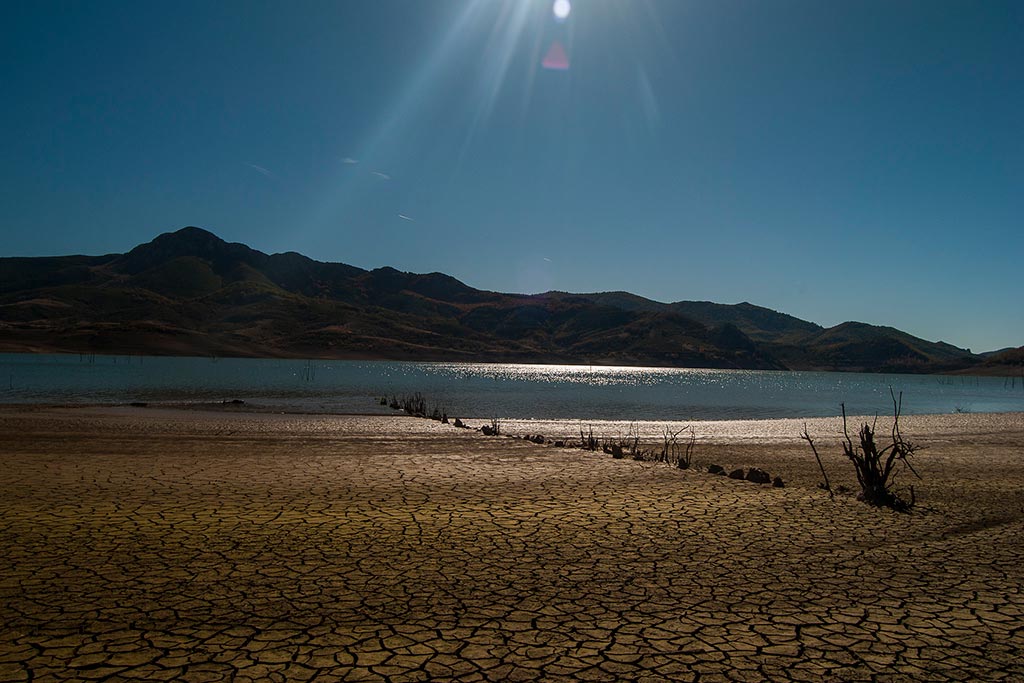
The COVID-19 pandemic and climate change have been argued to share the problem of exponential growth, in expansion and in emissions, that runs against the hard limits of the health system in the case of the coronavirus and against planetary boundaries in the case of climate change. Attention is now rightfully focused on the battle against the spread of the virus and the limits of stretched health systems around the world. Once the pandemic is contained however, the battle against climate change will be waiting. Actions to respond to the climate emergency will inevitably change the way we live. Social acceptance will be key to success in an area that has been prone to ideological divides in many countries in the past, Spain included. Interestingly, as the consequences of climate change become more readily discernible for citizens, the ideological divide regarding concern about climate change and support for policies to address it is less pronounced. It is argued that while ideological differences should be taken into account in policy design, broad support for ambitious and science-led policies in Spain across the political spectrum encourage addressing the climate emergency head on.
Historically, Spanish citizens have not been very concerned about the environment or climate change as an immediate problem for the country or for them personally. Key concerns for Spanish citizens include immediate personal or context specific problems such as unemployment, corruption, politicians, the economy, the health system, etc. However, when asked about foreign policy priorities and threats to Spain, citizens have indicated climate change ranks high on both accounts across the political spectrum.
In a recent survey, Lázaro-Touza, Escribano Francés and González Enríquez (2019) find that in Spain socio-demographic and ideological variables play a relevant role in the attitudes of citizens as regards the concern about climate change as a threat to the world, the perception regarding whether enough is being done at a national and international level to address climate change, the support for a framework Climate Change and Energy Transition Law and the extent to which different elements, instruments and processes of robust climate laws would find active or passive support by society.
Overall, those more aware of the existence and the anthropogenic component of climate change, respondents who are more concerned about climate change, and more willing to support ambitious climate change and energy transition goals (mainly by moving towards a net zero economy and a fully renewable power system) are mostly the young, the well-educated, left-wing respondents, and those living in large cities (Ibid.).
More specifically, the survey conducted by Lázaro-Touza, Escribano Francés and González Enríquez (2019) finds that people on the left of the political spectrum have a higher pro-ecological worldview, as measured using the New Ecological Paradigm scale (Dunlap, 2000). Right-wing respondents are more prone to think there is disagreement among scientists as regards the existence of climate change. There is also a significant difference across the ideological spectrum regarding the recognition of the anthropogenic component of climate change, with 16% of right-wing respondents stating it is not anthropogenic in origin vis-à-vis 4% of left-wing respondents. As regards whether the impacts of climate change are already discernible, 88% of left wing respondents say this is the case versus 77% of right wing respondents.
When asked about whether enough is being done at an international and at a national level to address climate change, a higher percentage of right-wing respondents believe enough is being done (18% –internationally– and 23% –nationally–) versus left-wing respondents (12% –internationally– and 15% –nationally–) respectively. On allocating responsibility for causing climate change, it is interesting to note that right-wing respondents believe nature is very responsible for climate change significantly more than left-wing respondents (13% versus 4%). As regards respondents’ willingness to pay to mitigate climate change through an annual increase in road tax, of those interviewees who owned a private vehicle 70% of left-wing respondents were willing to pay versus 39% of right-wing respondents.
When asked about whether Spain should have a Climate Change and Energy Transition Law, 93% of interviewees agreed to the adoption of said law, 98% of left-wing respondent supporting its adoption versus 84% of right wing respondents. Within the key elements of such a law, there is a very broad consensus regarding the need for a fully renewable power system. 91% of left-wing respondents would support a fully renewable power system versus 81% of right-wing respondents, even if this meant having to pay higher prices for electricity for some time. As for whether citizens should be allowed to use internal combustion engine vehicles (ICEs) as they have done in the past, 13% of left-wing respondents believe this to be the case versus 25% of right wing respondents. On extending the useful life of nuclear power plants, there are also ideological differences, with 20% of left-wing respondent supporting this measure vis-á-vis 40% of right-wing respondents.
Despite the statistically significant differences, in general, all socio-demographic groups and respondents across the ideological spectrum strongly support the adoption of a Climate Change and Energy Transition Law which would include key elements of other countries’ robust climate laws. These elements include, among other, an independent advisory body setting emission reduction objectives, the adoption of said objectives by politicians, the inclusion of a net zero emissions goal, the full decarbonisation of the power system by increasing renewable energy penetration, greater investments in new energy sources, even if this means less resources for other projects.
Once the pandemic is over, and given the broad social support for climate action, the long awaited Climate Change and Energy Transition Law in Spain should be adopted to respond to a threat that we have to confront without delay.


